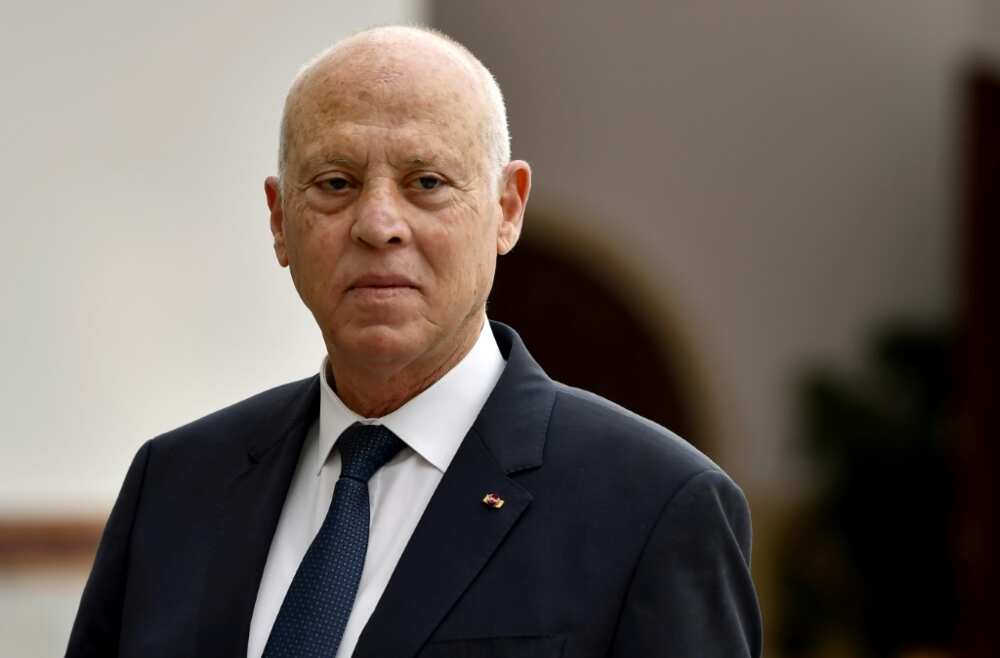Tunisia's Saied confirms no state religion in new charter

Source: AFP
PAY ATTENTION: Click “See First” under the “Following” tab to see Legit.ng News on your Facebook News Feed!
Tunisian President Kais Saied confirmed Tuesday that a draft constitution to be put to a referendum on July 25 will not enshrine Islam as the "religion of the state".
"The next constitution of Tunisia won't mention a state with Islam as its religion, but of belonging to an umma (community) which has Islam as its religion," he told journalists at Tunis airport.
"The umma and the state are two different things."
Saied took delivery of the draft text on Monday, a key step in his drive to overhaul the Tunisian state after he sacked the government and seized far-reaching powers last July in moves opponents called a coup.
Sadeq Belaid, the legal expert who headed the drafting committee, had told AFP in an interview earlier this month that he would remove all reference to Islam from the new document in a challenge to Islamist parties.
His comments, partly referring to Saied's nemesis Ennahdha, an Islamist-inspired party which has dominated Tunisian politics since 2011, sparked a heated national debate.
PAY ATTENTION: Share your outstanding story with our editors! Please reach us through info@corp.legit.ng!
The first article of Tunisia's 2014 constitution -- and its 1959 predecessor -- defined the North African country as "a free, independent and sovereign state. Islam is its religion and Arabic is its language".
The 2014 document was the product of a hard-won compromise between Ennahdha and its secular rivals three years after the revolt that overthrew dictator Zine El Abidine Ben Ali.
The new text, produced through a "national dialogue" excluding opposition forces and boycotted by the powerful UGTT trades union confederation, is meant to be approved by Saied by the end of June before being put to voters next month.
That is a year after the former constitutional law professor sacked the government, later consolidating his power grab by dissolving parliament and seizing control of the judiciary.
His moves have been welcomed by some Tunisians tired of the corrupt and often chaotic post-revolutionary system, but others have warned he is returning the country to autocracy.
Saied has long called for a presidential system that avoids the frequent deadlock seen under the mixed parliamentary-presidential system.
Asked about that issue on Tuesday, he said: "Whether the system is presidential or parliamentary is not the question.
"What counts is that the people has sovereignty. There's the legislative function, the executive function and the judicial function, and separation between them."
Source: AFP


